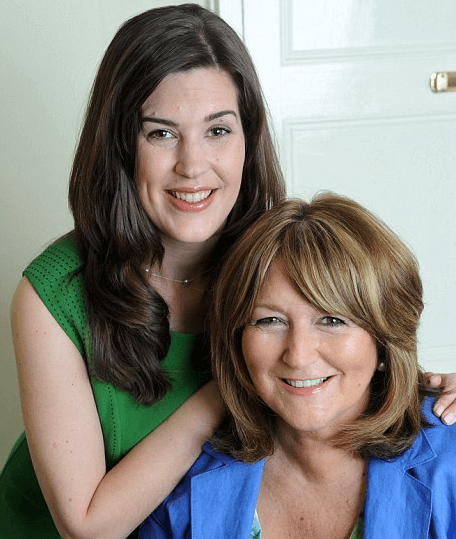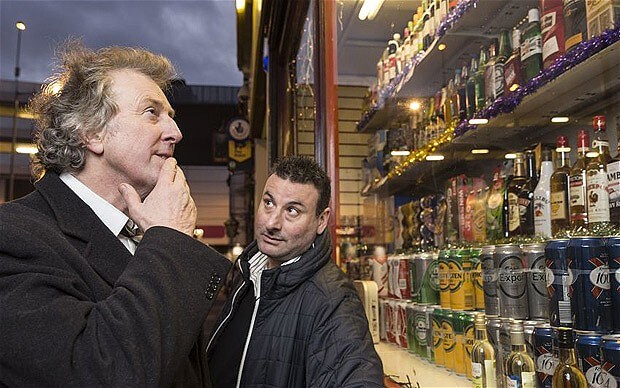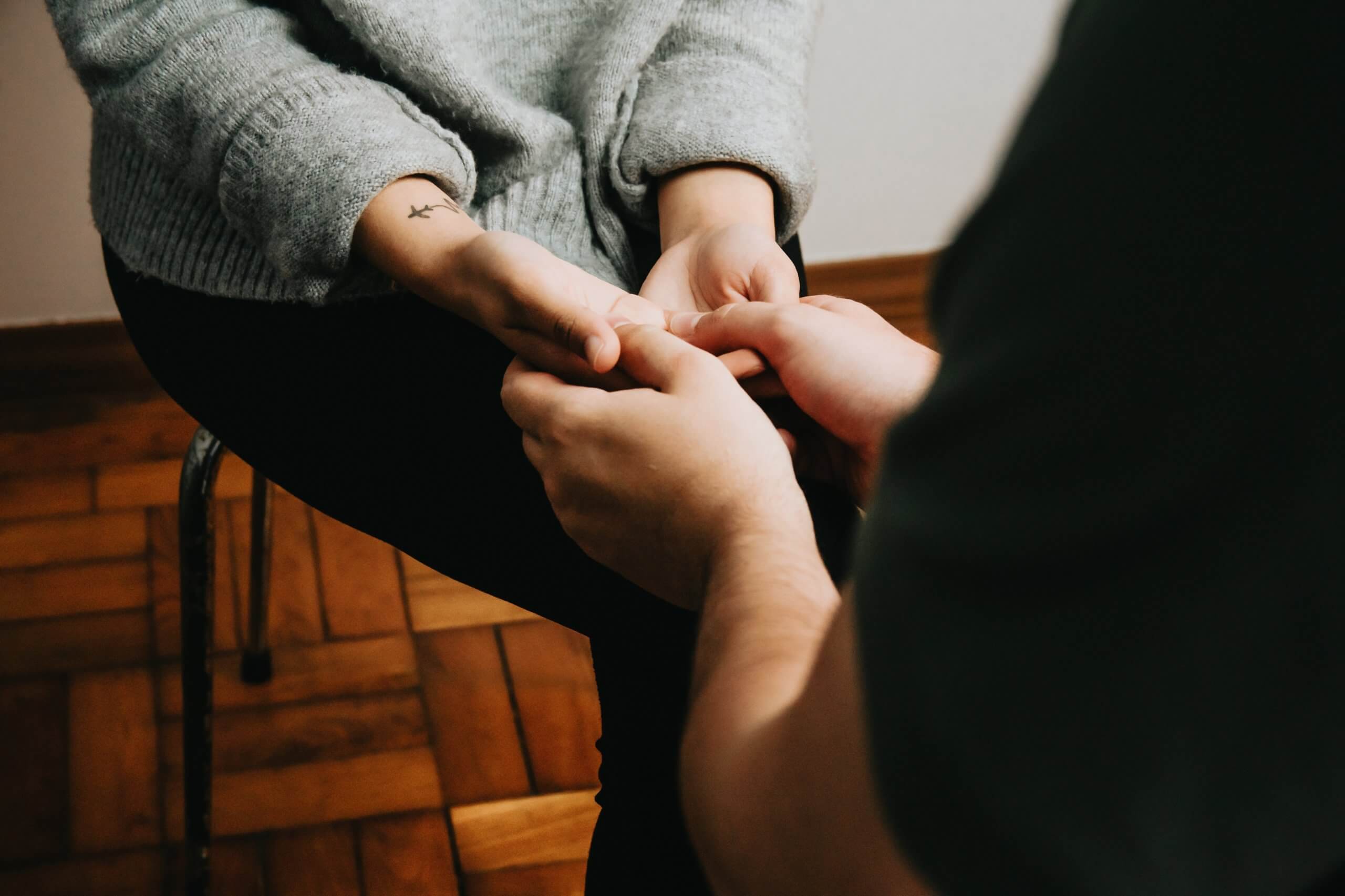By JENNY STOCKS, taken from The Daily Mail
The bedroom door swung open to reveal a female figure huddled over a wooden chest of drawers. Try as she might to hide the evidence, the tell-tale trail of white powder and tightly rolled £20 note had already been spotted.
‘I’ve only done it a couple of times,’ she stammered. ‘It’s under control. Please don’t tell Dad.’
It’s the sort of excuse and pleading that many a shocked mother has heard from a rebellious child caught dabbling in drugs.
Role reversal: Lauren is helping her mother Sandra to rebuild her life after she confronted her drug addiction
But Sandra Salmons wasn’t a troubled teen, she was a 46-year-old middle-class mother of one who had — unbeknown to her family — been addicted to cocaine for four years. And that afternoon she had just been discovered taking the drug by her daughter, Lauren, 21.
What took place over the ensuing years is both a shocking tale of one affluent mother’s descent into addiction, and testimony to a daughter’s unstinting love in the face of repeated betrayals.
I’ve never felt such agony as my broken heart
‘Looking back, I will always be sorry for what I put Lauren through,’ says Sandra, now 55. ‘If it hadn’t been for her, I wouldn’t be here today. Lauren saved my life.’
This is no exaggeration. At the height of her addiction, Sandra spent a staggering £1,000 a week on cocaine. Ultimately, it would cost her almost everything she held dear — a loving husband, a lavish five-bedroom home in Essex and every last penny she’d earned.
When she hit rock bottom, there was only one person left willing to assist her — Lauren, who footed the £28,000 bill for a rehab programme that would eventually rid her mother of her addiction.
‘I knew that a few of my friends had tried cocaine, so I thought: “Why not?”‘
Yet astonishing though her story is, it is far from a one-off. According to statistics from the National Treatment Agency For Substance Misuse, between 2005 to 2009 the number of women treated for cocaine addiction rose by a massive 55 per cent — with a 47 per cent rise among women over 40.
Harry Shapiro, director of communications at DrugScope, the UK’s leading centre of drugs expertise, says the falling price of cocaine has moved its use beyond celebrities and the super-rich, attracting stressed or disaffected middle-class women like Sandra.
‘With average prices falling by £45 to £50 a gram over the past 20 years, cocaine has shed its exclusivity but retained some of its glamorous image,’ he explains.
So how did a woman like Sandra become addicted in the first place?
Brought up in a comfortable home in Stratford, East London, by her engineer father and housewife mother, she showed huge promise in early adulthood.
By the age of 25, she had a loving husband who had built up a successful chain of retail businesses and a beautiful little girl, Lauren, who attended private school and enjoyed ballet and drama lessons. Yet perhaps because her life seemed so settled so early on, Sandra says she felt unfulfilled: ‘I always felt that something was missing. It was like there was a hole I needed to fill.’
At first, she tried to fill the gap with nights out with her friends.
‘When Lauren was two, I started going out again on Friday nights with the girls,’ she recalls. ‘I always drank to get drunk, and could manage to put away at least 12 glasses of wine, champagne and spirits during an evening. My hangovers were horrendous — I would stay in bed all day sleeping off the night before.’
Sandra’s husband simply put her behaviour down to her being the life and soul of the party. Even when their daughter was old enough to witness the effects of her mother’s drunken binges, Sandra couldn’t bear to stop. ‘I didn’t like it when Mum was sick from her hangovers, but she was always very glamorous and my friends loved her,’ recalls Lauren, now a 30-year-old accountant from Woodford Green, North-East London.
‘Yes, she would get drunk and sing Hey, Big Spender, ruffling men’s hair, but then every child is embarrassed by their mum.’
Before her troubles began: Sandra with Lauren just before she moved out for university. Sandra said missing her daughter was partly what drove her to drugs
It was in 1997 that Sandra’s life began to unravel. In quick succession, her husband had a debilitating heart attack and her father died, then Lauren left home to attend Exeter University. Lonely and depressed, Sandra took refuge in alcohol more frequently.
Then came the turning point. Out on a night with the girls in a London club, she was offered cocaine. She was 42. ‘I knew that a few of my friends had tried it, and thought: “Why not?” ’ she says.
‘Unfortunately for me, I absolutely loved it straight away. I couldn’t believe how confident and attractive it made me feel. I could drink more, I didn’t get hangovers and I could talk to anyone. I started using it every weekend.’
Within two months, Sandra was using the drug on weekdays, too, and got a dealer of her own. Like many addicts, she kidded herself that her habit wasn’t a problem. And in one sense, she was right. With her husband’s business — where she now worked in administration — thriving, finding the money to pay for the cocaine wasn’t an issue, even when she soon found she needed more and more of the drug to experience the same sensation.
‘I had wild mood swings but when my husband left me, all I felt was relief that I wouldn’t have to hide my habit any more’
‘If I was at the gym, I had to get off the treadmill to get high in the middle of a workout,’ she admits. ‘Even on smart dinners out with other couples, I would disappear to the toilet.
‘One night, I had left my husband and our group at the table in a restaurant. But as I was taking a glass vial of cocaine out of my bag, I dropped it and it smashed to pieces. Glass and cocaine were all over the floor. In a panic, I scraped it all up before snorting it, glass and all.’
Even potentially lethal incidents like this failed to bring Sandra to her senses. She hid behind the façade of respectability — she was slim and still took care of her appearance, ensuring her nails and hair were perfect and her clothes were smart.
But beneath the surface her personal life was falling apart. Her husband became increasingly intolerant of her wild mood swings, though he did not suspect the true cause.
Even when Sandra moved out of the marital bed so she could get up and take cocaine unnoticed during the night, she told him it was because he was snoring too much. ‘He seemed shocked and hurt, but he let me go. Some nights I would watch him quietly go up to his room and it made me feel so sad. I could see how lonely he was. But I couldn’t give up, so I pulled away from him completely.
‘He thought I had lost my marbles. I’d recently had a hysterectomy, and I think he thought that might be to blame. He was always quite private about how he was feeling. He buried his head in the sand, hoping it was just a phase I was going through.’
Counting the cost: Sandra had a £1,000-a-week habit that nearly cost her everything (posed by model)
But he did take one drastic step — telling Sandra she couldn’t work with him any more at the family firm because she was taking too much money out of the business. So, desperate for money to keep feeding her habit, she found work as an administrative assistant for a plastic surgeon.
It was only when her daughter Lauren returned home to live with them after university that she was finally caught taking the drug red-handed.
Lauren was shocked, but after much pleading, agreed not to tell her father. ‘From then on, Lauren watched me like a hawk,’ recalls Sandra. ‘I found it so frustrating. She followed me everywhere, even into the toilets, and used to search me for drugs when we went out. But I just hid the cocaine in my bra.’
Eventually the constant deception and disparity in lifestyle took its toll on Sandra’s marriage. In 2004, the couple went their separate ways — with her husband still none the wiser about her drug use.
‘Although I still loved my husband, I was completely dead emotionally,’ she says of the separation. ‘It might sound heartless, but all I felt was relief that I wouldn’t have to hide my habit any more.’
Sandra moved into her own flat and at first her hefty divorce settlement (which included proceeds of the house sale) funded her £1,000-a-week habit. By then, she was snorting a staggering five grams of cocaine a day — that’s a line every ten minutes — at a cost of £40 to £50.
Furious and distraught in equal measure, Lauren was terrified for her mother’s life. ‘Without Dad around, I feared Mum would kill herself with her addiction,’ she says. ‘She kept telling me I didn’t understand and I was so weary of nagging her.’
WHO KNEW?
Last year, more than 3,000 women and girls sought help for drug addiction – the equivalent of eight every day
Over the next few years, Sandra descended into the abyss — selling her car, jewellery and furniture to fuel her habit. Facing repossession of her flat, she emotionally blackmailed Lauren into giving her £10,000.
‘I had given her that money to save for a wedding,’ says Sandra. ‘But I was desperate, lying that I needed it for my mortgage. She knew why I really wanted it and shouted: “Take it and put it up your nose!” ’
By then, Lauren was working full time as an accountant, living in Islington, North London, with her long-term boyfriend James.
‘Mum acted so selfishly, she had become a complete nightmare,’ recalls Lauren today. ‘It was such a burden — I had to factor in checking on my mum to everything I did. It was hard bearing it alone, without siblings — I’m not sure how I would have got through without support from James.’
By now, Sandra’s hair was falling out in clumps and her skin was yellowy-grey — both common symptoms of cocaine use due to malnutrition, as heavy users tend to eat very little.
Eventually Lauren realised she had to act or her mother would die, and got in touch with a company called Sober Services, which can arrange ‘interventions’, in which drug users are visited at home by reformed ex-addicts and urged to confront the reality and consequences of their habit.
‘I was so desperate that I’d taken out a £20,000 loan to pay for a place in a UK rehabilitation centre,’ says Lauren. ‘Thankfully, when I showed up at her home with a former addict in tow, something seemed to click with Mum.’
Sandra agreed to check into rehab. But over the next 28 days, surrounded by other middle-class addicts, she became abusive and unpleasant to the staff.
Before she left, she was advised to seek further treatment — which required a further £8,000 from Lauren (scraped together from savings, her boyfriend’s bonus and selling jewellery) for a more intensive three-month programme in South Africa (one of the cheapest options available).
It was only there — as the drugs and alcohol eventually left her system — that Sandra finally began to face her demons.
‘The guilt, remorse and shame was overwhelming,’ she says. ‘I remember sitting on a beautiful beach, watching the sea, and wondering whether I should walk in and drown myself.’
But she kept on with the therapy, eating three meals a day, even cooking again. In the group sessions, she confronted the fact she had been manipulating her loved ones for years.
Her real test came when she returned to the UK. Thankfully, Sandra didn’t waver, but it was a while before Lauren would trust her mother again. Knowing alcohol had been the gateway drug to her mother’s cocaine use, she continued to monitor her closely.
‘I would check her breath if I thought I could smell alcohol,’ says Lauren. ‘And I’d even measure any bottles of spirits in my house when she was around.’
In the meantime, Sandra cut off all ties to her old life. She has now been clean of drugs and alcohol for two years, seven months and 22 days. Even now, every day is a struggle.
‘It’s still a constant battle to stay away,’ she admits. ‘Just the smell of champagne brings back my craving for cocaine. But I have to stay strong, for Lauren as well as myself.
‘She sacrificed so much for me, including thousands of pounds that she spent on my treatment. She never gave up on me. That’s something I will never forget.’
As for the reversal of the mother/ child relationship, she says simply: ‘I have had to put my guilt behind me. If I dwell on it, I will never be able to recover.’
For her part, Lauren says her devotion to her mother is unwavering.
‘I’ll never regret the money I spent on helping my mum,’ she says. ‘If your mother was dying of cancer, would you think twice about spending anything you could on her treatment? Most of us would do anything to save a person we love.’
sober-services.com.













